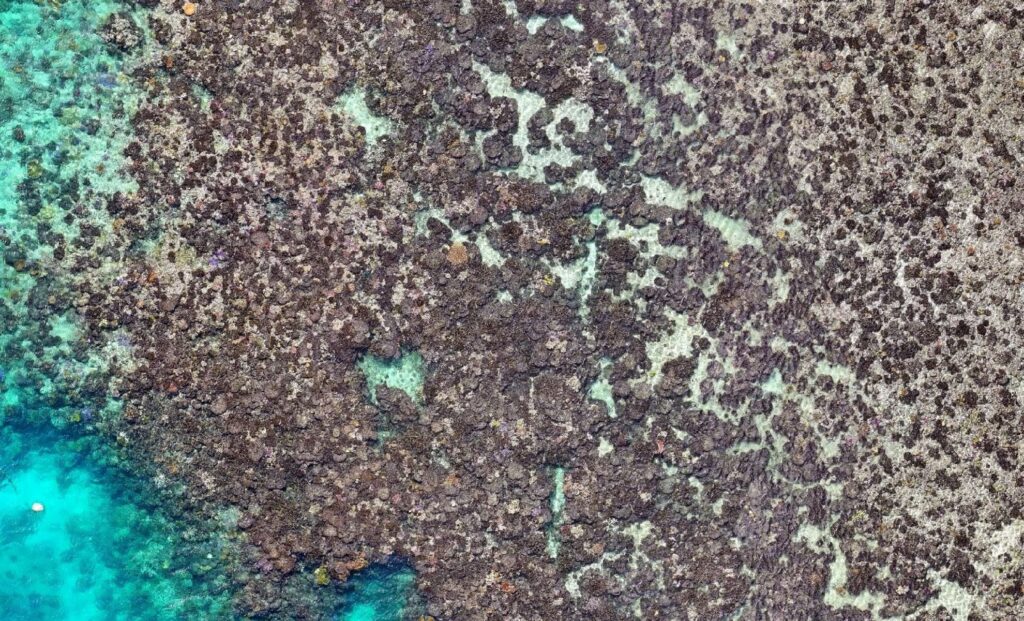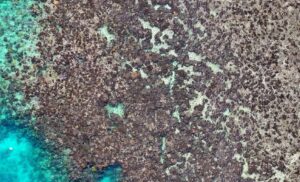
Coral reefs around the globe, including the iconic Great Barrier Reef, are facing unprecedented threats from climate change. A groundbreaking study published in 2025 in the journal Coral Reefs has revealed shocking levels of coral mortality at Lizard Island, a part of the Great Barrier Reef, following the 2024 Fourth Global Coral Bleaching Event. The research, which utilized advanced drone imagery, found coral mortality rates as high as 92%, underscoring the urgent need for action to protect these vital marine ecosystems.
The Role of Drone Technology in Coral Research
The use of drone technology was pivotal in this study, providing researchers with the ability to capture high-resolution images of the reefs before, during, and after the bleaching event. Models such as the DJI Mini 3 Pro and Autel Evo II were employed, offering unprecedented precision in documenting the extent of coral bleaching and mortality across vast areas. Professor Jane Williamson, a senior author of the study, highlighted the benefits of this technology:
“Using drone-derived imagery, we followed the amount of bleached and living coral during and after the bleaching event. Use of this technology lets us upscale the effects of the bleaching event over larger areas but still at high precision.”
Drone technology has proven to be an invaluable tool, allowing for comprehensive assessments of reef conditions, especially in areas that are otherwise difficult to access. This capability is crucial for monitoring the long-term health of coral ecosystems and identifying regions most vulnerable to climate change.
Unprecedented Coral Mortality Rates
The findings of the study are both alarming and eye-opening. Dr. Vincent Raoult, the lead author, emphasized the severity of the situation:
“This marks one of the highest coral mortality rates ever documented globally.”
At Lizard Island, some areas experienced mortality rates exceeding 92%, with certain sections witnessing a complete collapse. This is particularly concerning given Lizard Island’s previous resilience to environmental challenges such as cyclones and Crown-of-Thorns starfish outbreaks.
Despite experiencing lower heat stress compared to other parts of the Great Barrier Reef, the mortality rate at Lizard Island is unprecedented. Dr. Raoult noted,
“Despite lower heat stress at Lizard Island compared with other parts of the Great Barrier Reef, the mortality rate is unprecedented.”
This highlights the sensitivity of coral ecosystems to even minor increases in ocean temperature. As global warming continues, the threat to coral reefs worldwide intensifies, with the potential for irreversible damage if immediate action is not taken.
The Long-Term Threat to Reef Resilience
The implications of this research are dire, especially with the predicted increase in frequency and intensity of extreme heat events. Professor Williamson stressed the urgency of addressing climate change:
“Our results are concerning for coral resilience, considering the increasing frequency and intensity of extreme heat events predicted for the near future, with potentially irreversible consequences for reef ecosystems such as those studied in our Great Barrier Reef.”
Coral reefs are crucial for marine biodiversity, supporting a myriad of marine species and offering essential ecosystem services like coastal protection. The loss of coral cover not only affects marine life but also poses significant socioeconomic risks, particularly for communities dependent on coral reefs for tourism and fishing industries. With the growing severity of climate-induced stressors, coral reefs face the real possibility of collapse, and recovery could span decades or longer.
In response to these findings, the research team is conducting additional surveys at Lizard Island to monitor potential recovery over the coming years. These efforts are part of a broader initiative to safeguard coral reefs across Australia, supported by funding from the Australian Museum Lizard Island Critical Grant.
This development follows a series of studies highlighting the vulnerability of coral reefs to climate change, emphasizing the urgent need for global cooperation and innovative solutions to protect these vital ecosystems for future generations.






